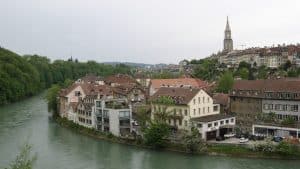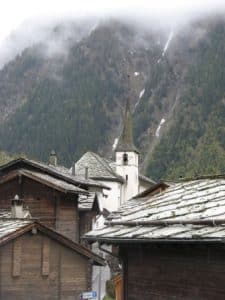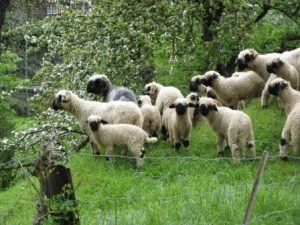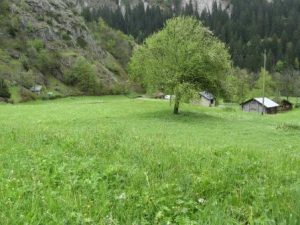Support us from £3/month
We deal with almost 1000 cases a year assisting communities, groups and individuals in protecting their local spaces and paths in all parts of England and Wales. Can you help us by joining as a member?
This was the title of the conference which our general secretary, Kate Ashbrook, attended in Bern, Switzerland, in May. It was organised by the International Association for the Study of the Commons (IASC) and Bern University, to discuss commons at a European level. Kate tells the story.
We should start with some definitions. ‘Glocal’ means the interaction between global governments, multi-national businesses and corporations, and local communities. ‘Commons’ at such conferences are much more than our land areas registered under the Commons Registration Act 1965, they embrace common resources—land, air, water, indigenous people, knowledge and much else.
I went to the conference with John Powell from the Countryside and Community Research Institute (CCRI) at Gloucester University. John is president-elect of the IASC. You can read his blog here.
This is my sixth IASC conference and I always find them interesting. They are largely for academics, but I have been trying over the years to encourage conference organisers to embrace practitioners (ie campaigners) since academics and practitioners need to work together and commons everywhere are under great threat and need people to fight for them.
I was pleased that this time the conference literature announced that there would be ‘practitioners’ labs’ and that organisations and individuals could apply for a slot—which of course I did. Unfortunately my event was not well attended because of the location and timing, but I managed to take advantage of another practitioners’ slot to initiate a discussion about how practitioners can work together, and how we can make more impact at these conferences.
Practitioners’ labs
Most of the practitioners’ labs were taken up by an organisation based in Switzerland called The ICCA Consortium. ICCA is not an acronym but refers to a close association, with effective local governance, between an indigenous people or community and their territory. One of the labs was about the consortium, another was about its aim to set up a fund to defend communities under threat (the group had many examples of individuals who had been murdered for defending their territory against multi-nationals and other land-grabbers), and another was about presenting a united front in trying to get commons recognised in the 2020 Common Agricultural Policy (CAP) round.
I went to quite a few of the academic sessions. For example I learnt about Smart Cities (Bangalore, India, is introducing a new traffic system to reduce traffic jams and accidents, and to enable people to walk and bike safely); forest commons (the commons of North Portugal are in many ways similar to ours); environmental justice, and geographical indicators and their effect on indigenous people.
Field trip
I took the field trip to Naters in Valais Commune, south of the Jungfrau range, to learn about the Jungfrau-Aletsch World Heritage Site, irrigation systems (surprisingly this is the driest part of Switzerland with little rain after May) and commoning—the communities still practice transhumance with their black-nosed sheep and black-necked goats, although farming is only part-time and not the main source of income for most families.
After a train journey to Brig and postbus to Blatten (complete with wifi) we walked down the valley from Blatten towards Natters looking at the irrigation channels (which were originally made from tree trunks). Every channel has a name. The community depends on these irrigation systems to enable them to grow their crops in the meadows. We had lunch with a family in a farmhouse in Geimen before walking the rest of the way to the road where we met the bus.
Bern
We stayed in a nice, old-fashioned hotel in Bern, next to the River Aare. This has a large meander which embraces the old town with its cobbled streets, and long arcades of shops. At the top of the hill behind our hotel is the Rose Garden, a public park and cemetery, with a fine view of the town. The university is on the other side of town and from there we had a good view of the mountains (Eiger and Jungfrau).
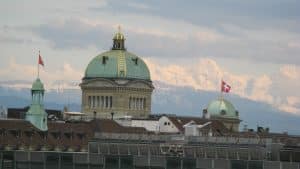
The mountains seen from the university, the Eiger is to the left of the dome, the Jungfrau to the right
The next conference, is the biennial conference in 2017, which will be held in Utrecht. I am hoping for a good turn-out from practitioners so that we can have a real impact.
For further information please see my blog.

